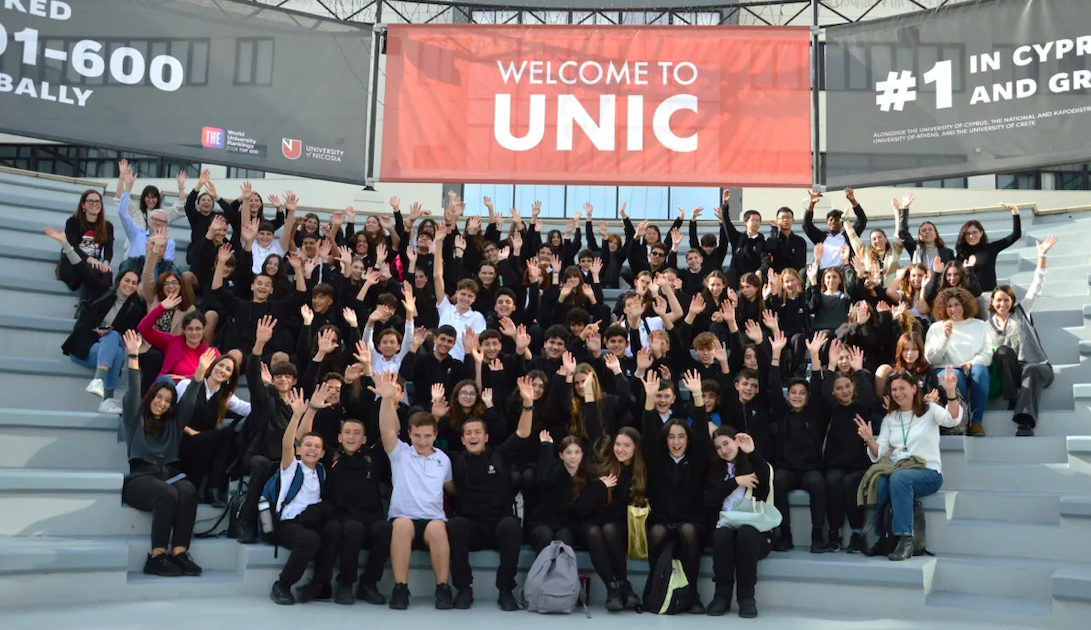UNIC Medical School Empowers Students in the Fight Against Antimicrobial Resistance
By Irene Drymiotou, University of Cyprus
The issue of Antimicrobial Resistance (AMR) continues to pose a significant global threat to human health, making it imperative to address and educate communities. For the second consecutive year, the MULTIPLIERS team in Cyprus, dedicated to tackling AMR in an open schooling approach, has taken a pivotal step. The University of Nicosia’s Medical School joined forces with the Cyprus Open Science Community in September 2023, aiming to advance their open schooling mission and raise awareness about AMR.
Following several constructive meetings with a team of well-established academics, a full-day school visit was organised on December 15th, 2023 as part of the MULTIPLIERS initiative. A group of 96 8th graders from the Senior School in Nicosia, accompanied by their teachers, embarked on an enlightening journey to the University of Nicosia. The goal was to immerse students in scientific practices and deepen their understanding of AMR within an authentic academic environment.
The Dean of UNIC Medical School, Prof Adonis Ioannides, welcomed the students with an inspiring talk about the Open Science Community’s mission to collaboratively raise awareness about AMR as well as the importance of cultivating scientific skills and take informed action. Dr Annalisa Quattrochi, Assistant Professor of Epidemiology, and the coordinator of this endeavour at UNIC, introduced the students to the day’s agenda
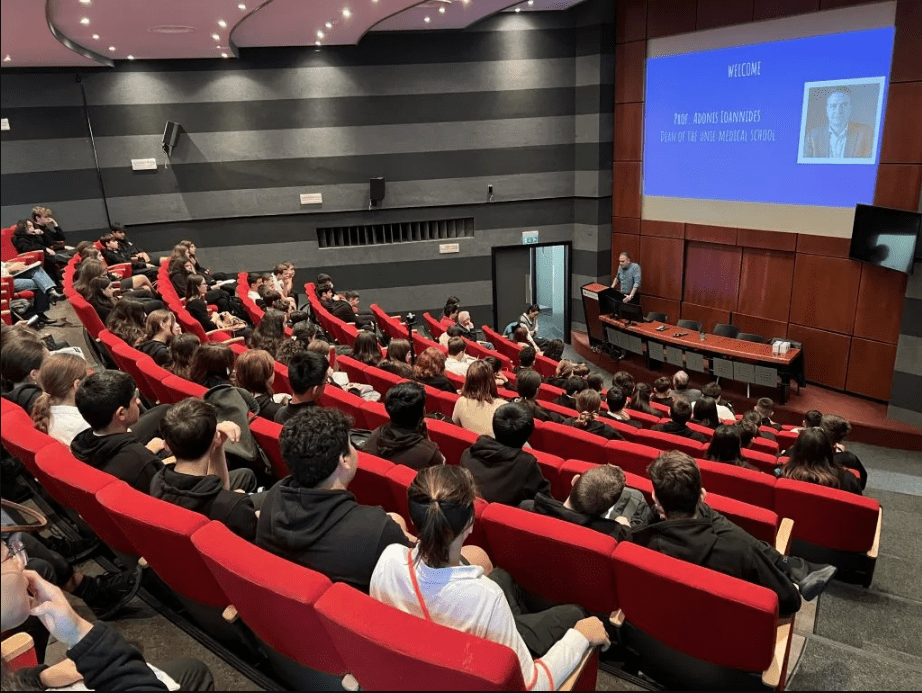
The students were divided into four groups rotating through four 30-minute engaging sessions led by seven experts:
1: Microbiology Laboratory
Dr Ender Volkan, Associate Professor of Microbiology, and her lab assistants guided students through hands-on experiences, including antibiogram analysis, bacterial culture observation, and a disk diffusion test to evaluate antibiotic effectiveness. The session also involved culturing bacteria found on their hands.
“I really like interacting with the students a lot. They were just brilliant, and I was so impressed by the way they were thinking. [..] First of all, they were knowledgeable about the issue, and they were able to think about it in a more complex way than just the textbook information. I think having a lab session with the plates in front of them and the antibiotic disks on them, getting to see the bacteria on a microscope, may help them to see the reality with their own eyes and to feel more connected to the issue as well.
We are trained in these topics so heavily that we kind of have a tunnel vision about how things work, but the kids are basically a clean slate. They think of the processes that we take for granted in a completely novel way. That really, really impressed me. Their critical thinking skills, how they were able to implement the knowledge they know from a completely different lens than that we’re used to in a very novel way really impressed me. I thought those kids were just brilliant!”
Dr Ender Volkan, Associate Professor of Microbiology, University of Nicosia
“I liked how they created that loud environment where they made you wear gloves and masks. It really made you feel like you were actually working there. It was actually visible how the bacteria can resist the antibiotic, how you can actually see the inhibition zone growing around the antibiotic disk. It really amazed me to actually see in front of me how it works. We got to use a lot of our senses. We got to touch things. We got to really interact with it physically.”
Senior School Student
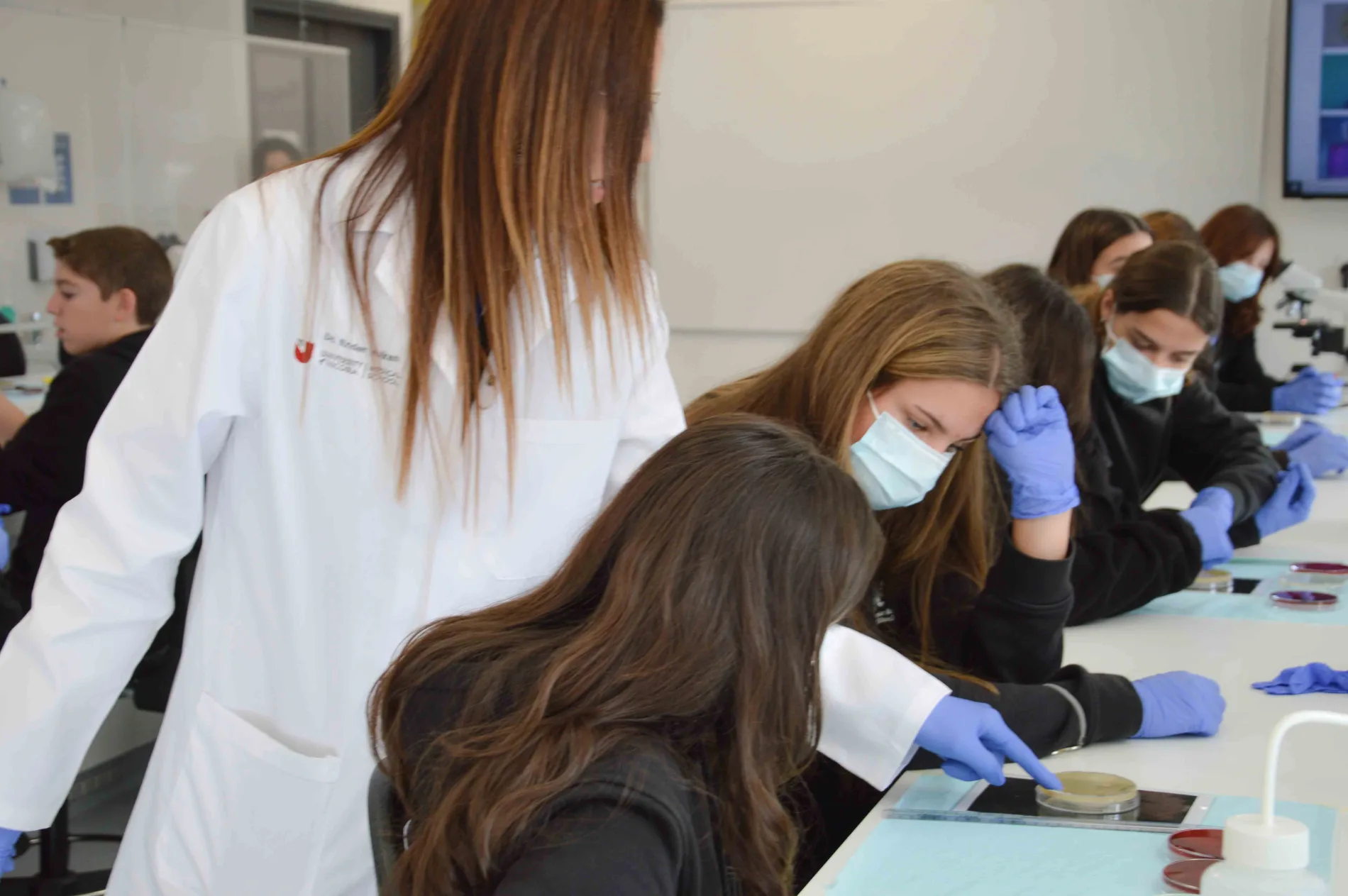
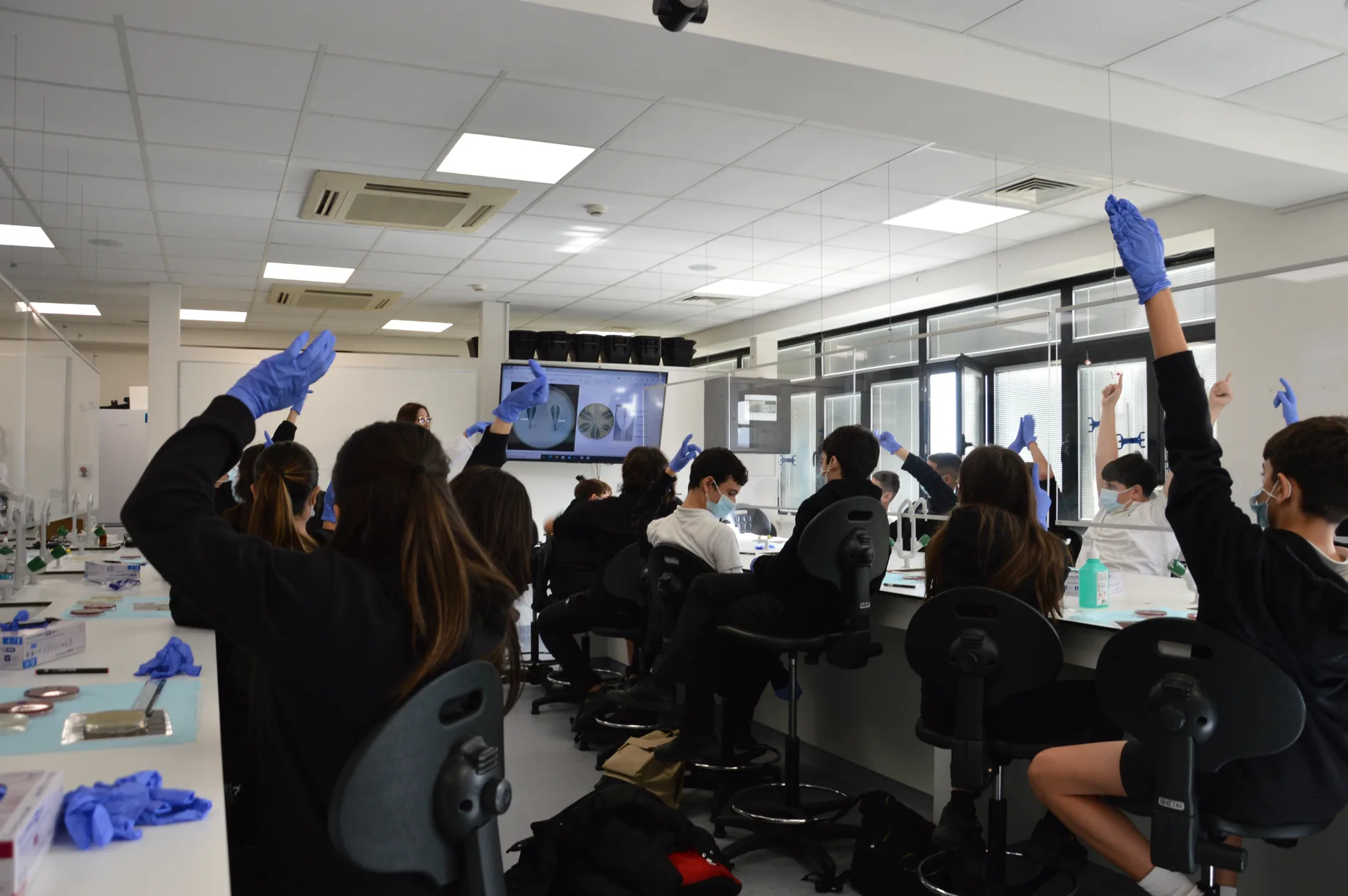
2: Simulated patient consultation
Prof. Danny Alon-Ellenbogen, Clinical Associate Professor of Internal Medicine and Infectious Diseases, performed a role-play where students witnessed a patient with flu symptoms requesting antibiotics persistently. This was followed by a discussion about the prudent use of antibiotics and the dangers of misuse.
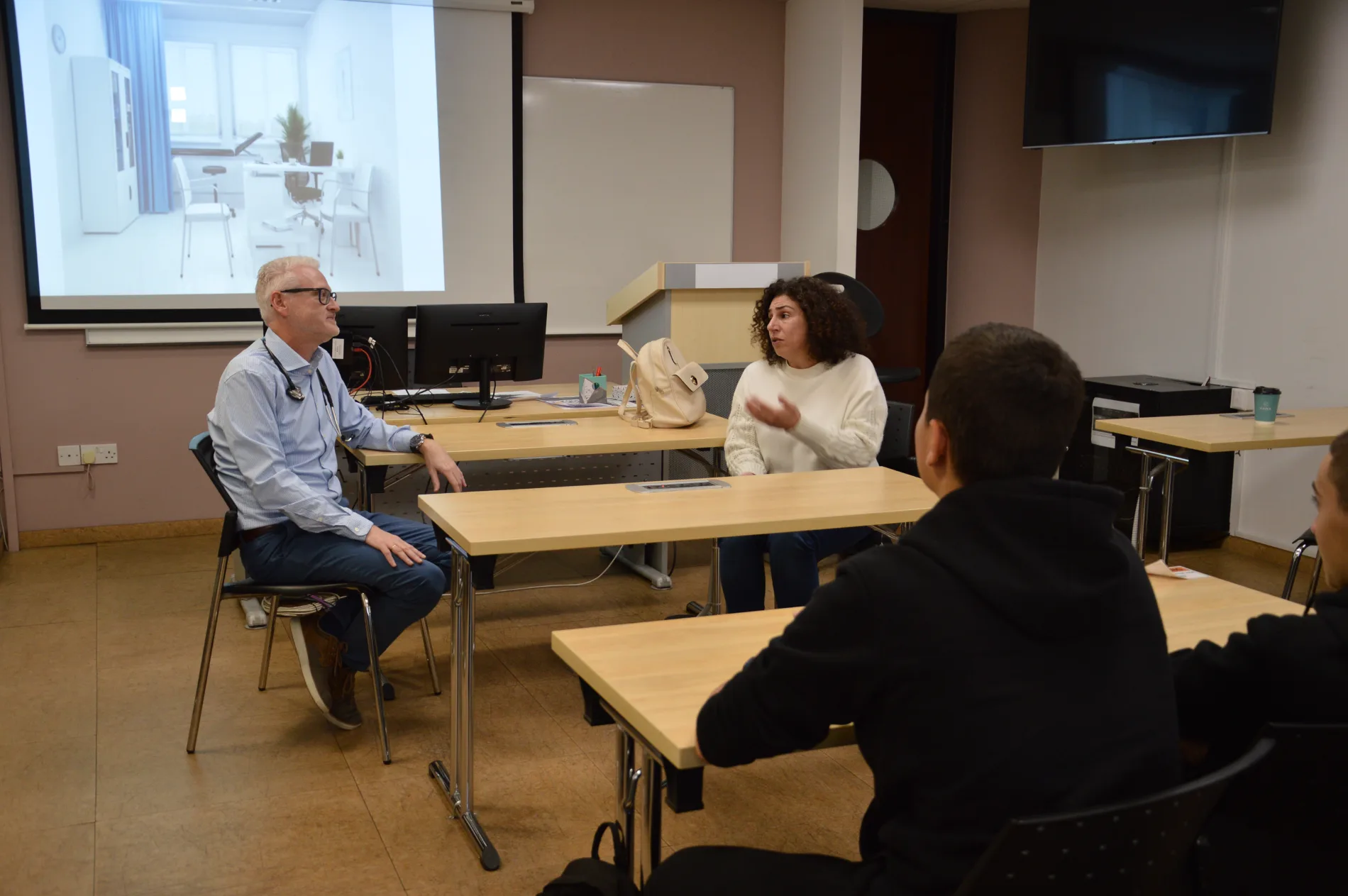

“The acting really demonstrated how serious the problem is and what doctors do. We understood the pressure the doctor has when the patients come and they’re always asking to get the antibiotics.”
Senior School Student
3: One-health session
Dr Eleni Gentekaki, Associate Professor of Microbiology, and Dr Daphne Mavrides, Clinical Assistant Professor of Veterinary Medicine and Surgery, introduced the One Health approach. Students explored the interconnectedness of bacteria growth, the spread of AMR from animals to humans and the environment, sparking discussions on preventive measures.
“I didn’t know it could be spread through the environment and animals as well because of people throwing away their expired pills. It was quite interesting.”
Senior School Student
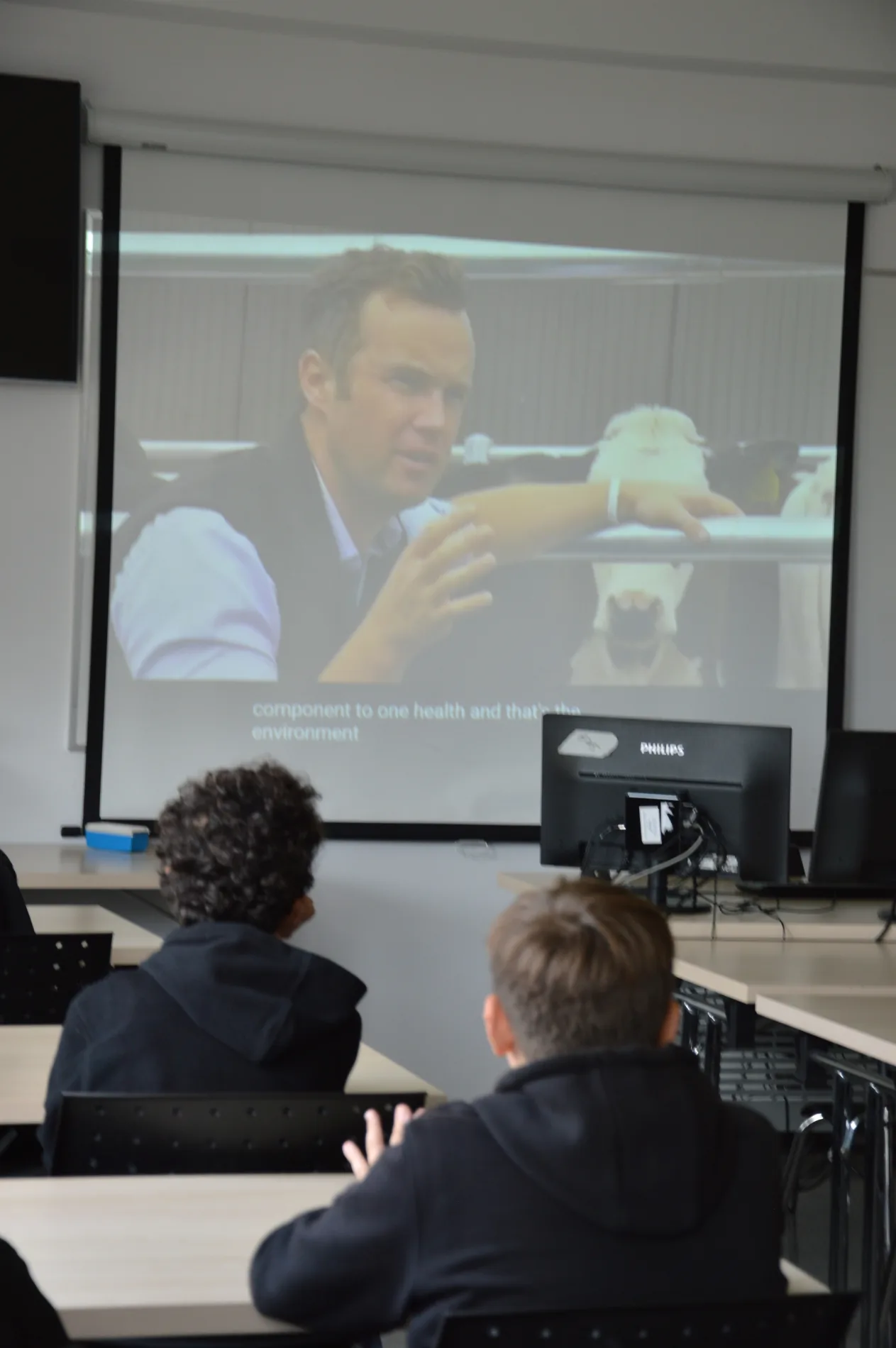

4: Meet the expert
Students interviewed Prof Petros Karayiannis, Professor of Microbiology/Molecular Virology, Dr Despo Ierodiakonou, Associate Professor of Family Medicine, and Dr Souzana Achilleos, Assistant Professor of Environmental health. The students gained insights into their daily routines, hobbies, career trajectories, reasons they chose to be scientists and their role in society, and perspectives on AMR based on a set of questions they prepared prior to the visit. The experts shared valuable insights into their career paths, personal experiences, challenges, and successes, offering a realistic view of a scientists’ life, giving advice to the new generation.
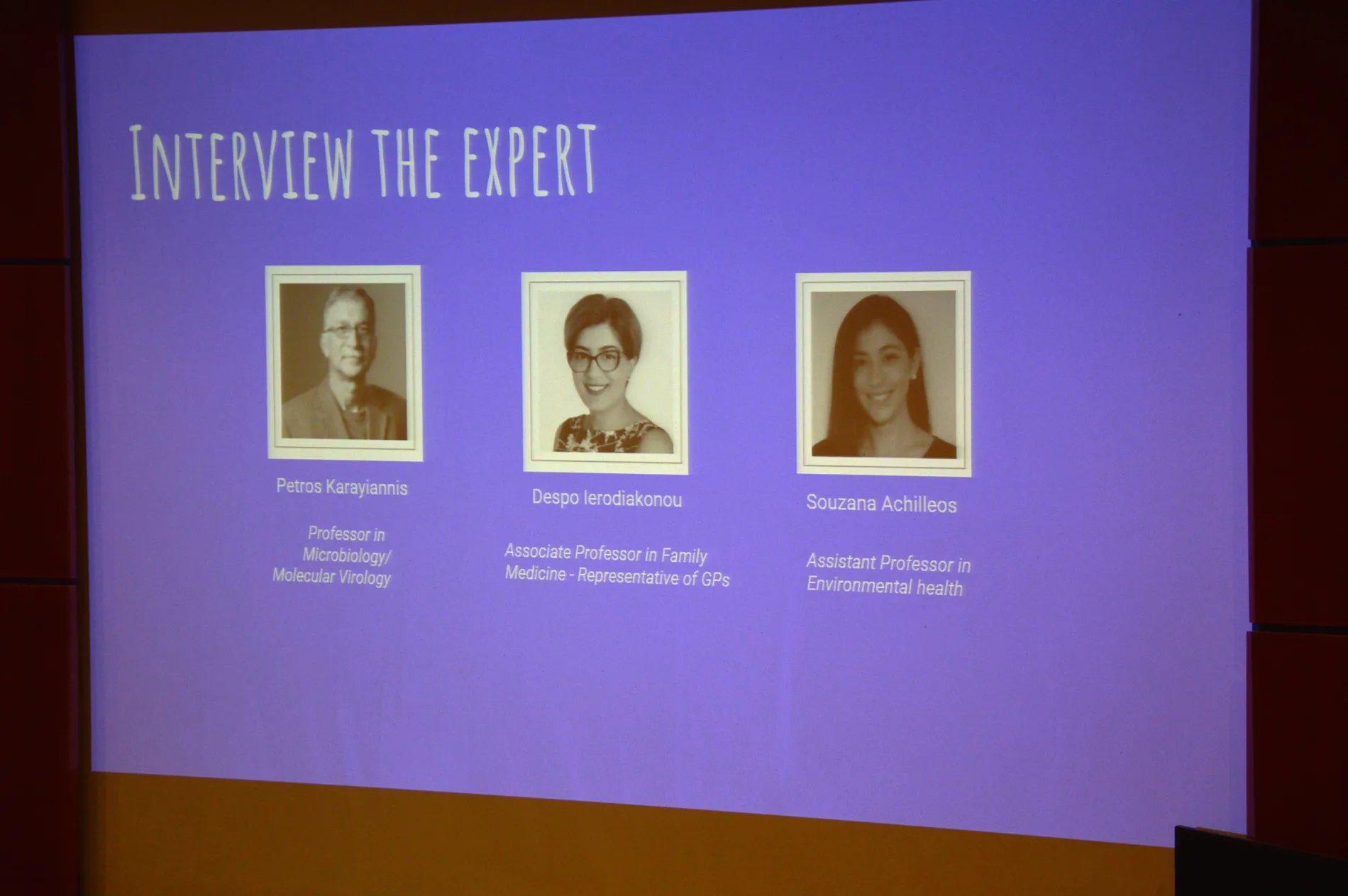
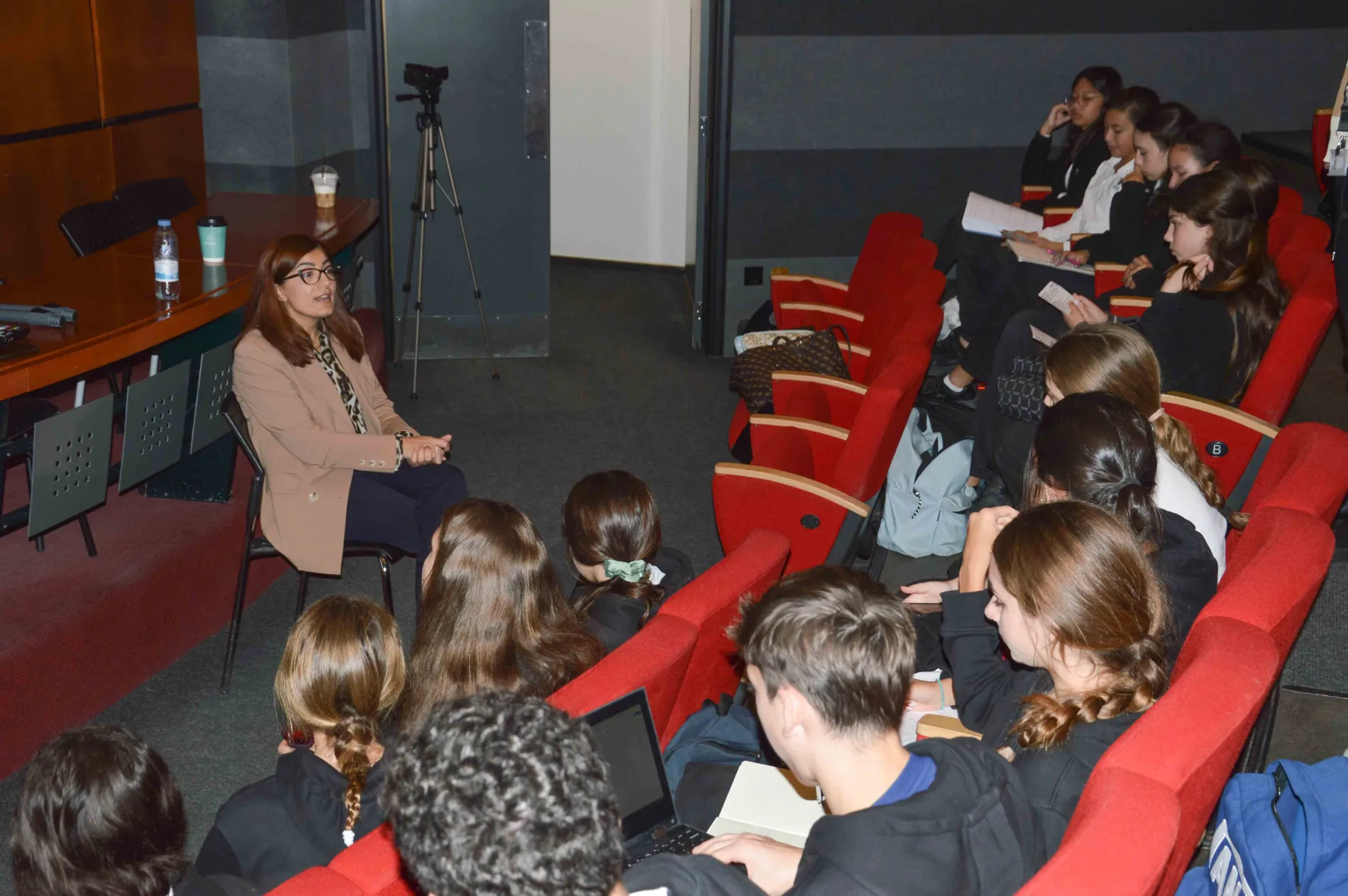
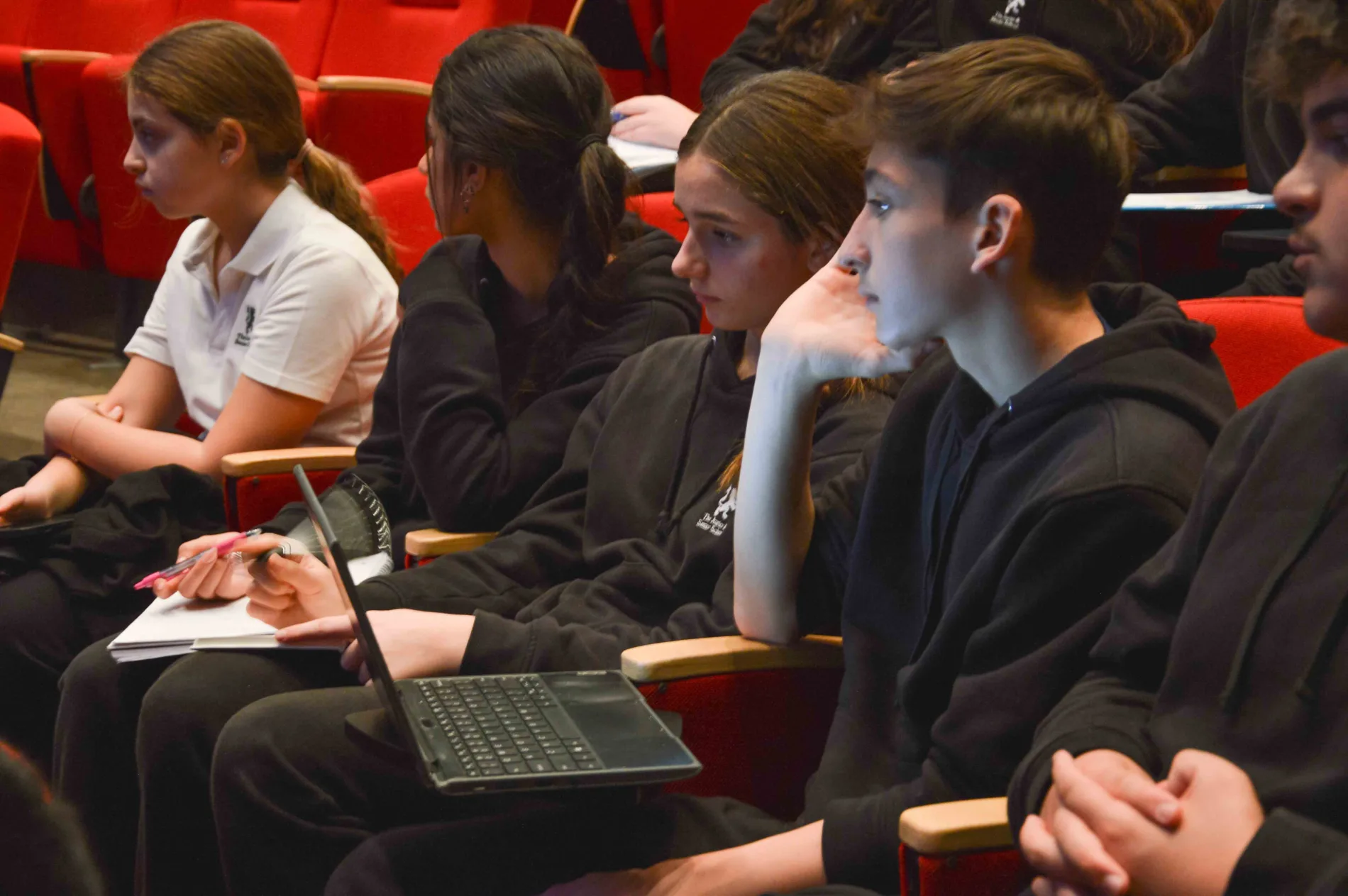
“It was interesting how Prof Karayiannis was very open to sharing facts about not only his work life, but also his home life and how he spends his free time. Despite his status – I guess he is a very important person – he didn’t let that get in the way of talking to us. He was very humble, and he spoke to us as if we were people of his age and he really didn’t shy away from our level. He showed us a part of his life and his experiences and how you can go from nothing when you didn’t really have anything to being this successful and I guess this is very inspirational. He’s someone you should look up to.”
Senior School Student
The school visit proved to be an inspirational and authentic experience, equipping students with knowledge about AMR and igniting a sense of responsibility to combat this critical issue and multiplying knowledge starting an awareness-raising campaign. This collaborative initiative between local secondary schools and universities aims to enhance students’ interest in science, promote understanding of relevant careers, and encourage proactive measures to fight AMR.
“I believe that this helped us in science generally. I’ve got a whole new perspective of how science actually is while going to the university, seeing all that work being done, and when I compare it to the theory we do in class, it’s definitely a whole new thing and it’s going to help me better understand future topics in science.”
Senior School Student
“I think they gained additional insight by realizing that these doctors, these experts, are not people outside of this world; they are common individuals who can be anyone. I mean, the next expert could be them if they so choose. Hopefully, this experience has brought the perspectives of experts and doctors to school students. I hope that those students who were perhaps considering a career in medical science have had their interest and awareness enhanced.”
Dr Annalisa Quattrochi, Assistant Professor of Epidemiology, University of Nicosia
“It made me really hopeful for the future. It really was useful to me because I felt encouraged to share something that I’m really passionate about with the kids, with the future, and they were so into it. They were so excited and that gave me hope. I felt more connected to the issue and to the kids. It was just a wonderful experience on my part, so I’m very thankful to have been involved.”
Dr Ender Volkan, Associate Professor of Microbiology, University of Nicosia
